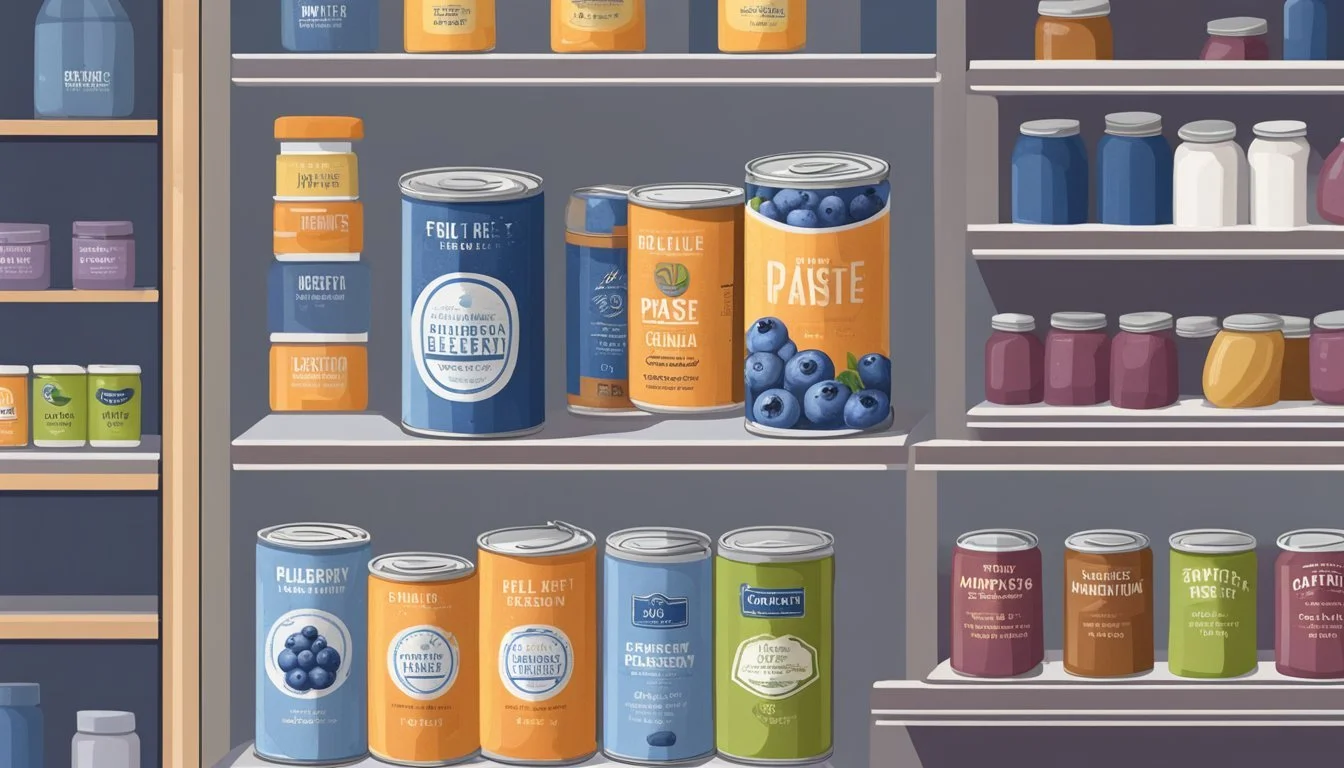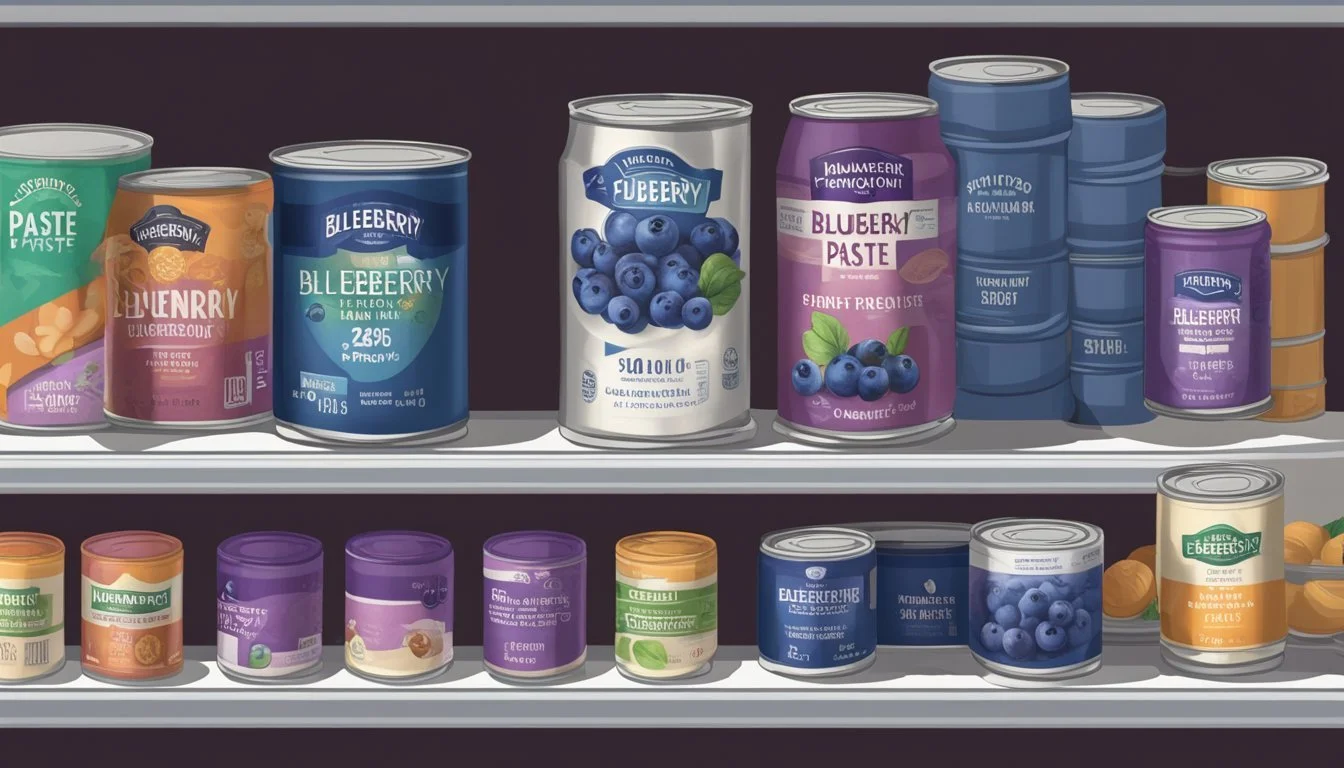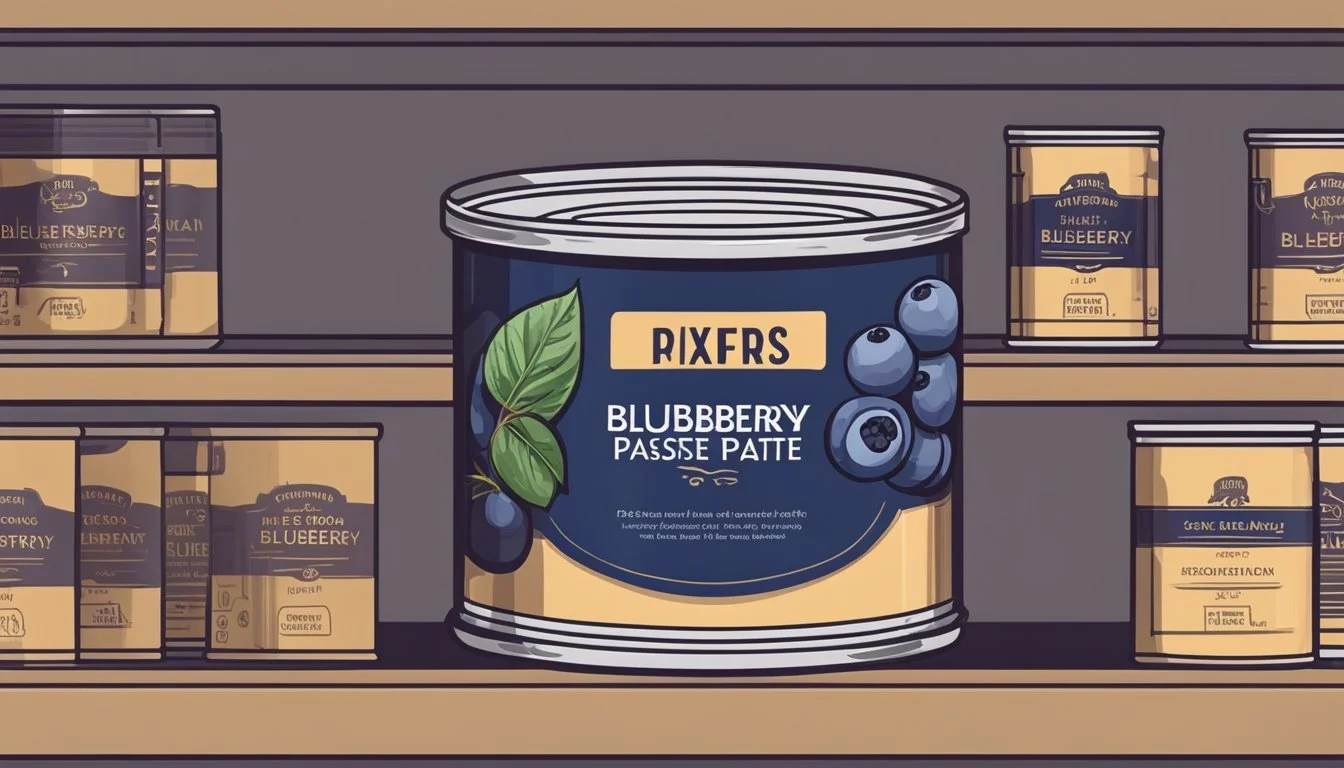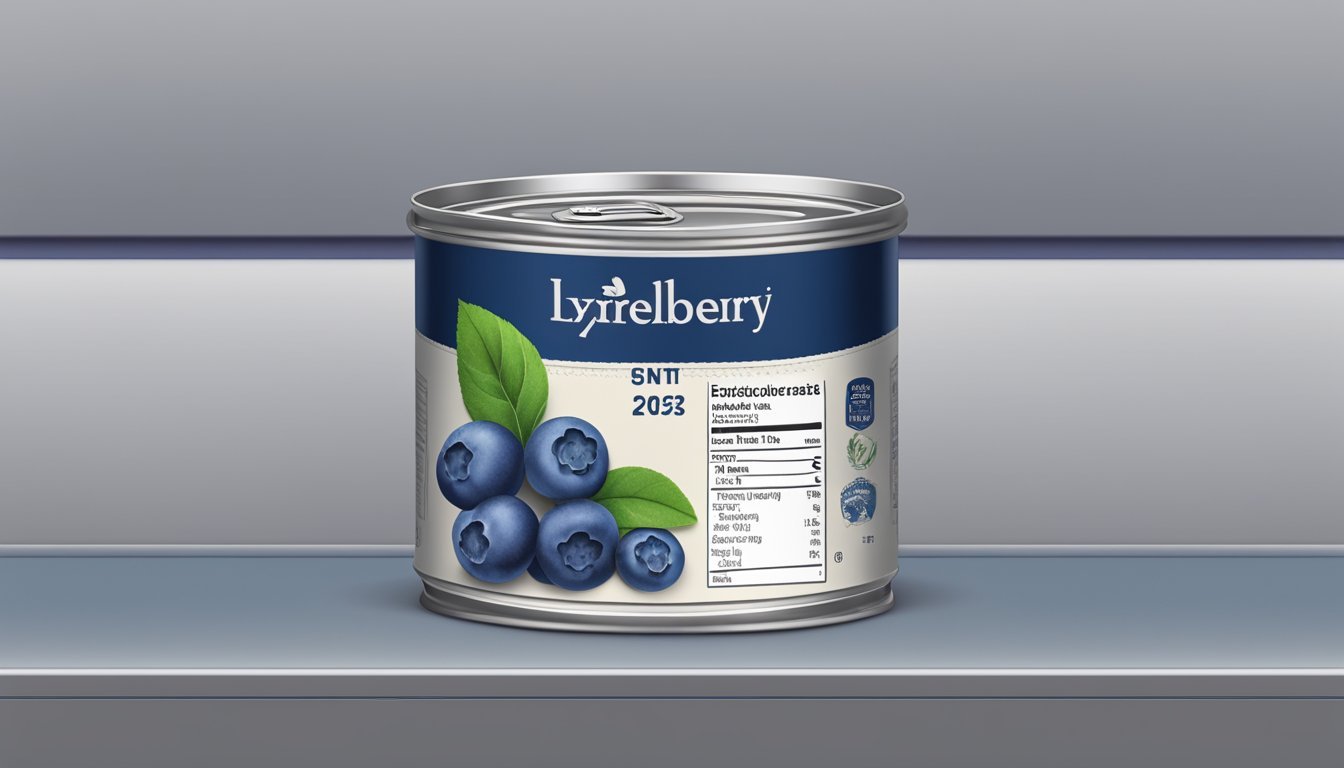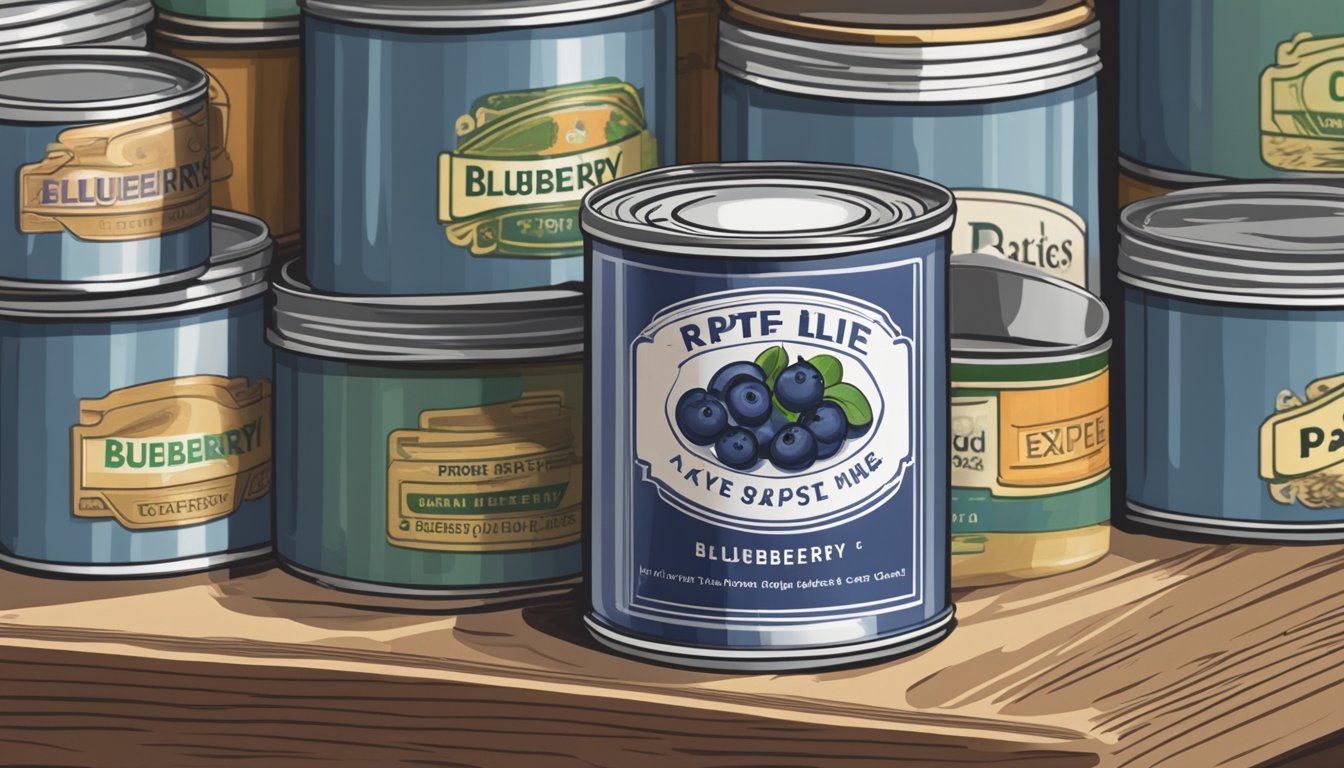How Long Does Canned Blueberry Paste Last?
Understanding Shelf Life and Storage Tips
Canned blueberry paste is a convenient and lasting way to enjoy the flavor of blueberries year-round. When unopened and stored properly in a cool, dry place, this product can maintain its quality for an extended period. The shelf life of canned blueberry paste generally spans from 12 to 18 months for optimal quality. It is important to note, however, that while the taste and nutritional value, such as vitamins, may decline over time, the safety of the product remains as long as the can is undamaged, and the contents have been stored correctly.
The characteristics of canned blueberry paste, such as its sugar content and acidity, play a vital role in its preservation. These factors provide an inhospitable environment for the growth of bacteria, molds, and yeasts, extending the shelf life of the product. It is during this period that the paste retains its intended flavor profile, making it suitable for use in a variety of recipes. Consumers should always inspect the can for signs of spoilage, including dents, rust, or bulging, and always use a clean utensil when handling the product to prevent contamination.
Factors Influencing Shelf Life
The longevity of canned blueberry paste is not just a function of time—it hinges on several critical factors, including how it’s stored, the condition of its container, and the methods used during the canning process.
Storage Conditions
Proper storage is paramount in extending the shelf life of canned blueberry paste. Temperature and humidity play significant roles; the product should be kept in a cool and dry place. Specifically, temperatures should ideally be maintained around 50°F to 70°F (10°C to 21°C). Exposure to higher temperatures or fluctuations can compromise the paste’s quality. To prevent spoilage, it is best to avoid storing cans where there is high moisture or humidity, as this can lead to rust and container degradation.
Pantry: Suitable for unopened jars, as long as it's cool and dry.
Refrigerator: Recommended for preserving quality after opening.
Container Integrity
The container's condition is imperative in preserving the blueberry paste's edibility and flavor. Cans or jars should be free from any signs of rust, bulging, or swelling, which indicate potential contamination or spoilage. Containers must be airtight to prevent the introduction of contaminants and ensure the longevity of the product. Even a minute breach in the seal can expose the contents to air and bacteria, drastically shortening its shelf life.
Airtight Container: Essential for preventing spoilage and maintaining quality.
Inspection: Regular checking for rust or damage can prevent potential health hazards.
Canning Process
The method and thoroughness of the canning procedure directly influence the shelf life of blueberry paste. Utilization of either a water bath canner for high-acid fruits or a pressure canner for low-acid foods ensures proper sterilization and preservation. The addition of lemon juice can raise the acidity level, which is an effective preservative method. A precise canning process that follows best practices will maximize shelf life by preventing the growth of bacteria, yeasts, and molds.
Acidity: Adding lemon juice can enhance the paste’s acidity, aiding in preservation.
Canner Type: Choosing the right canner type is crucial; water bath canners for acidic foods, pressure canners for less acidic ones.
Identifying Spoilage
When assessing if canned blueberry paste has spoiled, one should examine specific visual and textural changes, as well as alterations in smell and taste.
Visual and Textural Signals
One can usually recognize spoilage in canned blueberry paste through visual inspection. Key indicators include:
A change in color, such as blueberry paste becoming unusually dark or discolored.
Mold growth on the surface or underneath the lid is a definitive sign of spoilage.
The presence of bubbles or froth that should not exist in a stable canned product.
Smell and Taste Indicators
The sensory attributes of smell and taste are crucial in determining spoilage:
A foul or off-odor is a clear sign that the blueberry paste should not be consumed.
Any unexpectedly sour or bitter taste is a potential indicator of spoilage and the possible presence of botulism, a serious illness caused by Clostridium botulinum.
In addition to these signs, one should always check for any signs of damage to the can, such as dents or leaks, which can compromise the seal and lead to spoilage.
Optimal Storage Practices
Effective storage practices are essential for maintaining the quality and extending the shelf life of canned blueberry paste. By choosing the correct storage location and managing inventory through proper rotation and usage, one ensures the paste remains as fresh as possible until its use by or expiration date.
Best Storage Locations
To maximize the longevity of canned blueberry paste, one should store the product in a cool, dry pantry away from direct sunlight and heat sources. The ideal temperature for pantry storage is between 50 to 70 degrees Fahrenheit (10 to 21 degrees Celsius). If the pantry is not an option or once opened, a refrigerator is the next best choice for preserving the paste. Store the opened canned paste in a freezer-safe container if it is not going to be used within a week. This method prevents freezer burn and retains the quality of the blueberry paste.
Pantry (Unopened): Cool, dry place between 50–70°F (10–21°C)
Refrigerator (Opened): Store in a sealed container at 40°F (4°C) or below
Freezer (Long-Term Storage): Use a freezer-safe container to prevent freezer burn
Rotation and Usage
The principle of "first in, first out" should guide the usage of canned blueberry paste. Always rotate stock by placing newer cans behind the older ones, ensuring that no can goes past its expiration date before use. It is recommended to label opened containers with a "use by" date to track their remaining shelf life after breaking the seal. Staying organized in this manner not only helps in reducing waste but also ensures that the quality of the food one consumes is always at its best.
Label Containers: Use a marker to add "use by" dates on opened containers
Stock Rotation: Place new stock behind the older stock (First In, First Out)
Nutritional Profile
The nutritional profile of canned blueberry paste is characterized by its macronutrient content and the presence of various vitamins and minerals, which contribute to its overall nutritional value.
Macronutrient Content
Canned blueberry paste primarily consists of carbohydrates, with lesser amounts of protein and fat. The high carbohydrate content offers a quick source of energy, while the protein and fat are minimal. The specific content per serving size can vary depending on the brand and preparation method, but on average, a serving of blueberry paste might contain the following macronutrients:
Calories: Caloric content is typically high due to sugars present in the paste.
Protein: Usually low, as fruits are not a significant source of protein.
Fat: Negligible amounts, as fruits contain very little fat.
Carbohydrates: Predominantly from natural sugars and added sweeteners, if any.
Fiber: Although less than fresh blueberries, some fiber is retained.
Vitamins and Minerals
The nutritional value of canned blueberry paste includes various vitamins and minerals, although some may diminish over time due to the canning process. Notable vitamins and minerals in blueberry paste are:
Vitamin C: A known antioxidant, although it can degrade over time in canned products.
Vitamin K: Important for blood clotting and bone health.
Manganese: Essential for bone development and other body processes.
Iron: Present in small amounts, contributing to the transport of oxygen in the blood.
Canned blueberry paste may also contain antioxidants, which are compounds that can protect the body from oxidative stress. However, the canned variant might have lower antioxidant levels compared to its fresh counterpart.
Extending Shelf Life
Proper storage methods can significantly impact the longevity and preservation of canned blueberry paste. To ensure the best quality over time, attention must be paid to both temperature control and canning enhancements.
Refrigeration
Refrigeration is essential for maintaining the quality of canned blueberry paste after opening. Once the seal is broken, refrigeration slows down the degradation process. One can expect the contents to remain at their best if stored consistently at cold temperatures. A general guideline is to store opened canned blueberry paste in the refrigerator, where it can last for up to two weeks. To maximize shelf life, store in an airtight container or a freezer bag if not used immediately.
Canning Enhancements
The longevity of unopened canned blueberry paste can be extended by perfecting the canning process. Key enhancements include:
Canning Recipe: Adhering to a tried and tested canning recipe is crucial. Ensure that the recipe used is specific to blueberry paste to maintain its quality and safety.
Acidity: Adding lemon juice before canning may improve preservation by lowering the pH, which inhibits the growth of harmful bacteria.
Water Bath Canning: This technique involves boiling the cans in a water bath to kill off potential spoilage-causing organisms. It can also help in sealing the cans more effectively, further protecting the contents.
Employing these methods can help maintain the paste's quality, extending its shelf life significantly before opening.
Usage Tips
Canned blueberry paste is a versatile ingredient that can enhance a variety of recipes, offering both a punch of flavor and added nutrition to sweet and savory dishes. When incorporating this paste into meal planning, one can consider its rich taste and ease of use in both cooking and baking.
Culinary Applications
Cooking: Blueberry paste can be a flavorful addition to sauces and glazes, adding depth to dishes. It seamlessly blends with reductions for meats or becomes a vibrant base for fruit barbecues sauces.
Baking: Incorporating blueberry paste into bakes goods such as muffins, pancakes, or quick breads contributes moisture and berry flavor. It's particularly effective as a filling for pastries or layer cakes.
Pairings and Combinations
Desserts: Mix blueberry paste into ice cream or swirl into yogurt to create a delightful dessert. Its concentrated flavor pairs well with creamy textures.
Lemon: The tartness of lemon juice or zest can balance the sweetness of blueberry paste, making a perfect pairing for frostings or lemon-blueberry tarts.
Sugar Alternatives: One can reduce added sugars by leveraging the natural sweetness of the paste in various desserts and sweet treats.
Health and Safety Considerations
When considering the health and safety aspects of consuming canned blueberry paste, consumers need to be aware of several key points. The most pertinent issues include food safety, the risk of botulism, and potential health benefits.
Food Safety: It is essential that canned blueberry paste is stored properly before opening to prevent spoilage. Once opened, blueberry paste should be refrigerated and consumed within a set time frame to maintain safety and quality.
Unopened cans should be stored in a cool, dry place.
After opening, refrigerate the paste in a covered glass or plastic container.
Consume refrigerated blueberry paste within 5-7 days for optimal safety.
Botulism Risk: Botulism, a rare but serious illness caused by Clostridium botulinum bacteria, can occur in improperly canned or preserved foods, including blueberry paste. Consumers must ensure that cans are not damaged or bulging, and that home-canned products are processed following strict canning guidelines.
Inspect commercial cans for dents, rust, or swelling.
Follow proper canning techniques for homemade blueberry paste.
Health Benefits: Blueberries are known for their antioxidant properties and potential health benefits, including reducing the risk of certain types of cancer. These benefits, due to compounds like vitamins and antioxidants, may extend to canned products but can diminish over time.
Antioxidants in blueberries may help protect against oxidative stress.
While some vitamins degrade with time and processing, minerals typically remain unaffected.
Consumers should always follow current guidelines and not rely on canned goods beyond their optimal shelf-life to prevent health risks and maintain nutritional benefits.
FAQs and Common Concerns
How long does canned blueberry paste last?
Canned blueberry paste, when stored properly, has a shelf life that extends up to 18 months for optimal quality. It will remain safe to consume after this period, but there may be a noticeable change in taste and texture.
Will the paste spoil after the use by date?
It's unlikely to spoil immediately after the use by date. Canned goods are known for their long shelf life, and if the can remains undamaged, the contents should be safe to eat.
What happens if I consume blueberry paste after its best before date?
Consuming blueberry paste after its best before date might not offer the same freshness and quality. However, if it has been stored correctly and the can shows no signs of damage, it should not pose a health risk.
Can I buy canned blueberry paste in bulk?
Purchasing in bulk can be cost-effective, but one should consider their consumption rate against the product's best before date to avoid unnecessary waste.
How should I store my canned blueberry paste to ensure longevity?
Store canned goods in a cool, dry place away from direct sunlight to extend their lifespan. Ensure the storage area is clean to minimize the risk of attracting pests that could compromise the cans' integrity.
Are there any signs that canned blueberry paste has gone bad?
Yes, if the can is bulging, leaking, or has an off odor, it's a clear sign of spoilage, and the paste should not be consumed.
Conclusion
When considering the longevity of canned blueberry paste, it is important to consider storage conditions and the product's specific preservation process. Unopened, commercially canned blueberry paste will stay safe for consumption indefinitely if stored in a cool, dry place. However, for optimal quality, it is recommended to use it within 12 to 18 months.
Factors affecting the shelf life include the:
Amount of sugar
Acidity levels
Presence of preservatives
In the home-canning scenario, while safety may extend beyond the one-year mark, the best quality is experienced when the product is consumed within the first year of canning.
One should always inspect the can before use, checking for:
Signs of damage
Expiration dates (if available)
Changes in color, smell, or texture
The preservation of vitamins and flavor profiles diminishes over time, while carbohydrates, proteins, and mineral content remain relatively stable. Consumers should follow manufacturer guidance and rely on visual inspections to make informed decisions about consumption.
Remember, when in doubt, it's safer to discard any canned goods that show signs of spoilage or compromised packaging to prevent any potential health risks.

